Multi-lingual songwriter, composer, actress and performer Anoushka Lucas shares some invaluable lessons learned from her time spent treading the boards
Born and raised in London in a bi-cultural environment – with a Franco-Cameroonian mother and an Anglo-Indian father – Anoushka Lucas studied at The French Lycee before studying Russian and Italian at Oxford University. Becoming a composer and performer led her to create original scores for numerous productions including Sparks (winner of Best Musical at the 2018 Edinburgh Fringe Festival) and starring as Mary Magdalene in the Olivier Award-winning production of Jesus Christ Superstar, as well as landing numerous other theatre and television roles.
With this experience working on stage and screen, and with a new album out, we asked Anoushka to tell us how her theatre work has influenced her songwriting…
Read more ‘Tips & Techniques’ features here
1. You can’t write a good song if you’ve got nothing to say
In good musical theatre, characters only burst into song when they’ve run out of other ways to say what they mean. The song needs to come from a deeply private, honest space – a space of truth that you can’t fake. In my first show – Klook’s Last Stand, Park Theatre 2014 – writer Ché Walker and I came up with a song for our lead character to sing where she revealed she was falling in love. The trouble was she’d more or less said as much in the scene before, so when we workshopped it the song fell flat on its face. I found that when writing my album, the same rules applied. So even though we recorded a lot of songs, only eight made it on the record – the ones which showed I had something necessary to express.
2. Find the right team
Being a singer-songwriter is a lonely business. The bulk of the musical and administrative work falls on your shoulders, so when it’s not going so well, it can be hard to muster the belief or energy to keep going. Conversely, a show only works when a whole team is assembled: a director, a designer, a music director, a sound designer, a host of actors, dancers not to mention the stagehands who keep it all running smoothly. When I worked on the behemoth that was Jesus Christ Superstar at Regent’s Park, I learned that great work is usually only achieved when a lot of hardworking and talented people are sharing the load – rather than one person trying to do everything. This lesson has paid dividends in finding the right producers, musicians, manager, PR and I’m grateful I put energy into finding those people once I was ready.
3. A song is only as good as its performance
Writing songs is my simplest joy. I grew up on Carole King, Amy Winehouse, Prince, Joni Mitchell, Randy Newman, and a lot of The Beatles. But it was when I started writing songs for other people to sing, I learned that a song becomes really good only when it’s well performed. I have been blessed to work with extraordinary singers and storytellers – my songs have been sung by Sheila Atim and Cynthia Erivo to name a few – and each of them have made me up my own game when I’m on stage myself, in a bid to lift each song as high as it can go.
4. Deadlines are your friend
For most of my teenage years and early 20s, I sat around waiting for the muse to visit me. Thankfully I was incredibly angsty at that time, so she visited a lot. Maybe too much. When I found myself working on my first theatre project (totally by accident) as part of a summer masterclass at Riverside Studios and was asked to deliver one new song every Sunday for two months, I was sure I wouldn’t be able to do it. Imagine my surprise when it turned out I could write a song to a deadline, and not only that I had to become more skilled and present to do it, and so doing it made me a better songwriter. I still love The Muse very much and her visits still deliver the most honest songs, but learning to start it myself freed me up to go into the studio with a blank page and see what happens when I jam with other people.

Anoushka Lucas: a song becomes really good only when it’s well performed
5. Your inner critic needs to get off the stage
Performing my own songs and managing to make some kind of career out of it is a privilege I don’t take lightly. That being said, on a bad day it can be hard to switch off my inner critic when I’m up on stage, e.g. “God that is a terrible line, why did you sing that like that? Etc… “ When my theatre company TRIP took our two-hander musical Sparks to the Edinburgh Festival in 2018, I agreed to sing and act in the show, in character (it took some coercion from the two brilliant women I wrote it with). Suddenly my head was in musical director mode rather than singer mode, and I had to show up and do the songs in the way that served the scene, not sit around thinking about how average the crap bits of the songs were. As a result, the songs had space to breathe and we even wound up winning Best Musical of The Fringe, with just a piano and two of us on stage.
6. Study the greats
People have been writing songs for a very long time. In theatre, there is a reverence for those who came before: you’d be hard-pressed to find someone composing who doesn’t have an opinion on Sondheim, Bernstein, Lin-Manuel Miranda or Sara Bareilles. Pop music, on the other hand, can sometimes seem like it’s based on the idea of a new, now, fresh something that has never been done before. When it comes to production I think this experimental attitude is great and necessary, but when it comes to songwriting – well, there’s no harm in studying how other people made melodies and harmonies work before you. There are a lot of tasty treats to find in earlier music.
7. Pick yourself up after a bad show and do a better one next time
Performing in a musical after writing the music for two was a baptism of fire, purely because I was expected to show up and be good 8 times a week. When it’s your own gig, you can remodel the setlist and cheat your way around songs but in a big show, you have to deliver the material as it is. You can’t dwell on one bad performance when you have two more to get through in that 24-hour period. You just dust yourself off and do it again. Learning this was a gift when I went on mini-tour earlier this year – don’t be too precious about each gig!
8. Finding a tribe will keep you sane
Being a singer/songwriter is an isolated thing, especially early on in your career. You likely don’t know more than a handful of other singer-songwriters, who you’re told you’re in competition with, and it’s hard to gauge what you’re doing right and wrong. Theatreland, on the other hand, is full of people who want to work on shows. You meet a million actors, dancers and writers trying to make it work, and you realise how vast the arts are, and how hard and competitive these industries are for everyone. I find it hugely comforting to know and work with so many arty people making it work as best they can, holding down side jobs and supporting each other.
9. Do both!
There is a hell of a lot of fear between ‘pop music’ land and ‘musical theatre’ land. For a very long time, I was told by record label execs and producers – that working in theatre made me less marketable and that I had to choose. But working in theatre has made me a better songwriter, and has proven to be a semi-stable working environment that has done wonders for my confidence (and health!), all of which I’ve been able to pour back into my own music. I am so grateful to have been able to do both and would urge any creative person who’s being told they need to stick to one form to ignore this advice that is so rooted in fear of the unknown!
10. We all need songs
Sometimes it can seem a little silly to spend your time on earth making songs that no one has asked you to make. But working in theatre taught me that the right song, at the right moment, allows human beings to feel things we all need to feel to be whole. It can move us, to laugh, to dance, to cry, to love and this is something that every musician I have worked with, whether on stage, in the studio or in a show, knows and understands. I feel so immensely privileged to be able to write songs for myself and for characters that exist inside other people’s heads and I only hope I’ll be able to write many more in years to come.
Anoushka Lucas’ album Dark Soul is out now. Find out more at anoushkalucas.com
Read more ‘Tips & Techniques’ features here





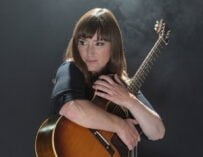
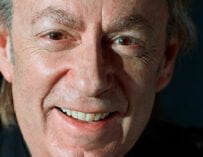



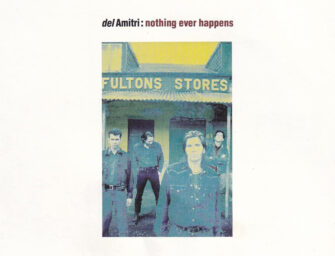

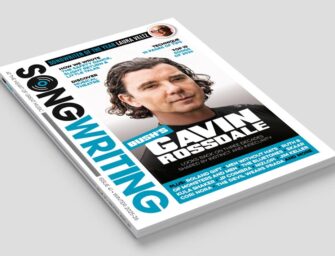
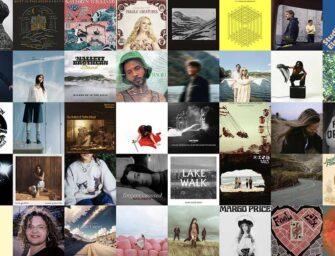




















Related Articles